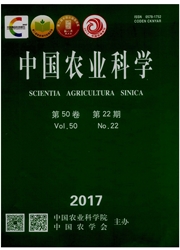

 中文摘要:
中文摘要:
非洲是全世界气候变化最脆弱的地区,而非洲农业受气候变化的影响最为敏感。气候变化已经并将继续对非洲农业和粮食安全产生较大的负面影响。提高气候变化对非洲作物产量影响的理解,揭示非洲农业对气候变化的响应规律,是及时、正确和有效适应气候变化的关键。本文综述了非洲农业对气候变化的响应与适应的研究进展,总结了作物机理模型、统计模型和经济模型目前研究这一问题的三大主要方法,系统阐述了非洲农业对过去和未来气候变化的响应程度及适应措施。未来气候变化对非洲农业的可能影响,不同的研究在不同时间尺度和空间尺度上,随着气候情景、研究方法和作物种类的不同,影响程度的结论差异性较大:作物机理模型方法显示的影响范围是-84%—62%;统计方法评价的影响范围则是-57%—30%;而用计量经济学方法研究显示的影响范围是-100%—168%。随着气候变化对非洲农业的影响得到公认,非洲农业对气候变化的适应问题得到了越来越多的研究。选育抗旱品种、发展保护性农业、完善灌溉设施、调整技术管理等适应措施将有可能对粮食安全带来更大的益处。另外,加强极端气候事件的监测和预警、增强气候预报、有效结合气候变化制定农业生产种植和管理措施、调整作物布局、发挥区域和国际组织(世界气象组织WMO、联合国粮农组织FAO等)在非洲应对气候变化影响方面的合作和对非洲的援助等措施均可提高非洲农业对气候变化的适应能力。本文进一步讨论了研究中存在的不确定性因素,包括数据、方法、结果的不确定性以及气候变化的间接影响、缺乏综合研究等问题,并指出了未来的发展趋势。本文有助于更好地理解非洲农业产量对气候变化的响应与适应,为解决非洲粮食安全问题和消除非洲贫困提供科技支撑,同时也为中国农?
 英文摘要:
英文摘要:
Climate change has a negative impact on agriculture and food security, and this implication will be further going on and on in the future. We need to improve our understanding of the effects of climate change on agricultural production in Africa, and to know the responses of climate change to African agriculture. These are critical keys to adapt to climate change for agriculture in time. This paper introduced the response and adaptation of African agriculture to climate change, and summarized that statistical model, crop model and economic model are the three tools for researching this issue. The responses of climate change to African agriculture in the past and future were reviewed. The conclusions for possible effects of climate change on African agriculture in the future were different, depended on different time and space scales, research methods and crop types. The ranges of the effects were from-84% to 62%,-57% to 30% and-100% to 168% assessed by crop models, statistical models and economic models, respectively. As the big effects of climate change on African agriculture, the adaptation of African agriculture to climate change has been studied by more and more researchers. Adaptation measures like changing cultivars, conservation agriculture, irrigation and adjusting technology will bring more benefits for food security. In addition, some other adaptations, like strengthening the monitoring and warning of climate change, enhancing climatic forecasting, planning crop growth and manage measures using climatic information, adjusting crop allocation, playing advantages of local and international organizations, can also improve the adaptation ability of African agriculture to climate change. The uncertainties, including data, method, results, the indirectly effects of climate change and the lacking of integrated researches, were also discussed. Finally, the future work in this issue was presented. This study will help people to better understand the responses and adaptations of African agriculture to climate cha
 同期刊论文项目
同期刊论文项目
 同项目期刊论文
同项目期刊论文
 期刊信息
期刊信息
